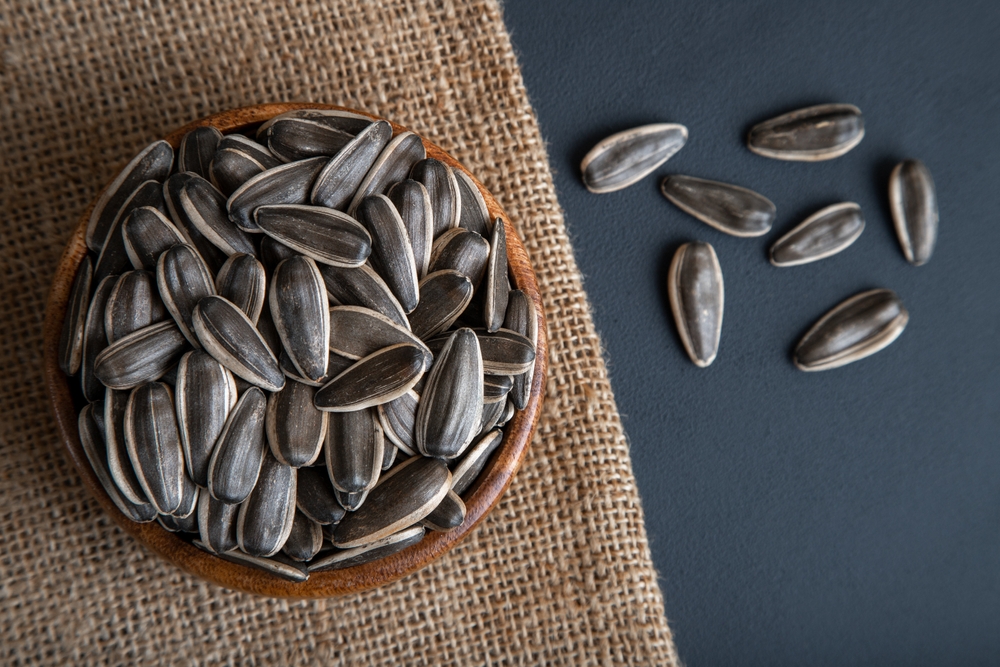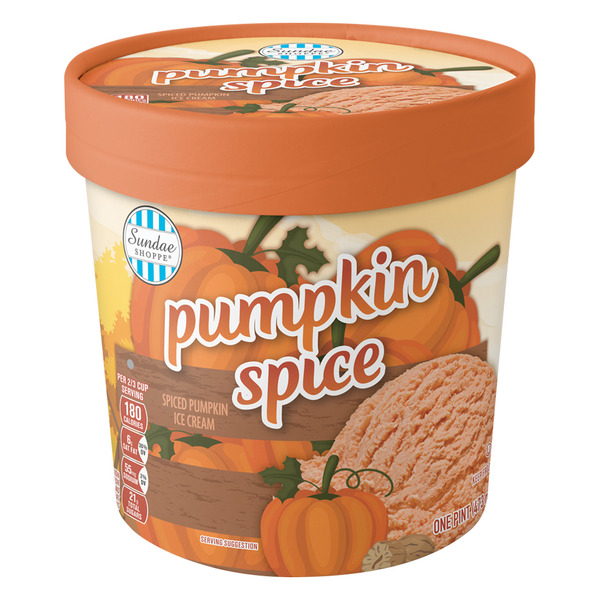Maintaining a healthy digestive system is crucial for overall well-being, and the foods you choose can play a significant role in supporting gut health. A balanced diet rich in specific nutrients can help improve digestion, reduce bloating, and enhance nutrient absorption. Here are some of the tasty options to keep your digestive system in top shape.
Contents
- 1 Yogurt
- 2 Kefir
- 3 Sauerkraut
- 4 Kimchi
- 5 Kombucha
- 6 Miso
- 7 Tempeh
- 8 Ginger
- 9 Garlic
- 10 Onions
- 11 Bananas
- 12 Apples
- 13 Berries
- 14 Chia Seeds
- 15 Flaxseeds
- 16 Whole Grains
- 17 Leafy Greens
- 18 More From RetailShout
- 19 11 Trader Joe’s Fall Home Goods You Need Before They’re Gone
- 20 19 ALDI Products You Can’t Miss This September
Yogurt

Yogurt is a well-known probiotic food that contains live bacteria cultures, such as Lactobacillus and Bifidobacterium. These beneficial bacteria help restore the balance of gut flora and improve digestion. Consuming yogurt regularly can reduce symptoms of bloating and constipation while enhancing nutrient absorption. Additionally, the protein and calcium content in yogurt contribute to overall health, making it a nutritious choice for a balanced diet.
Kefir
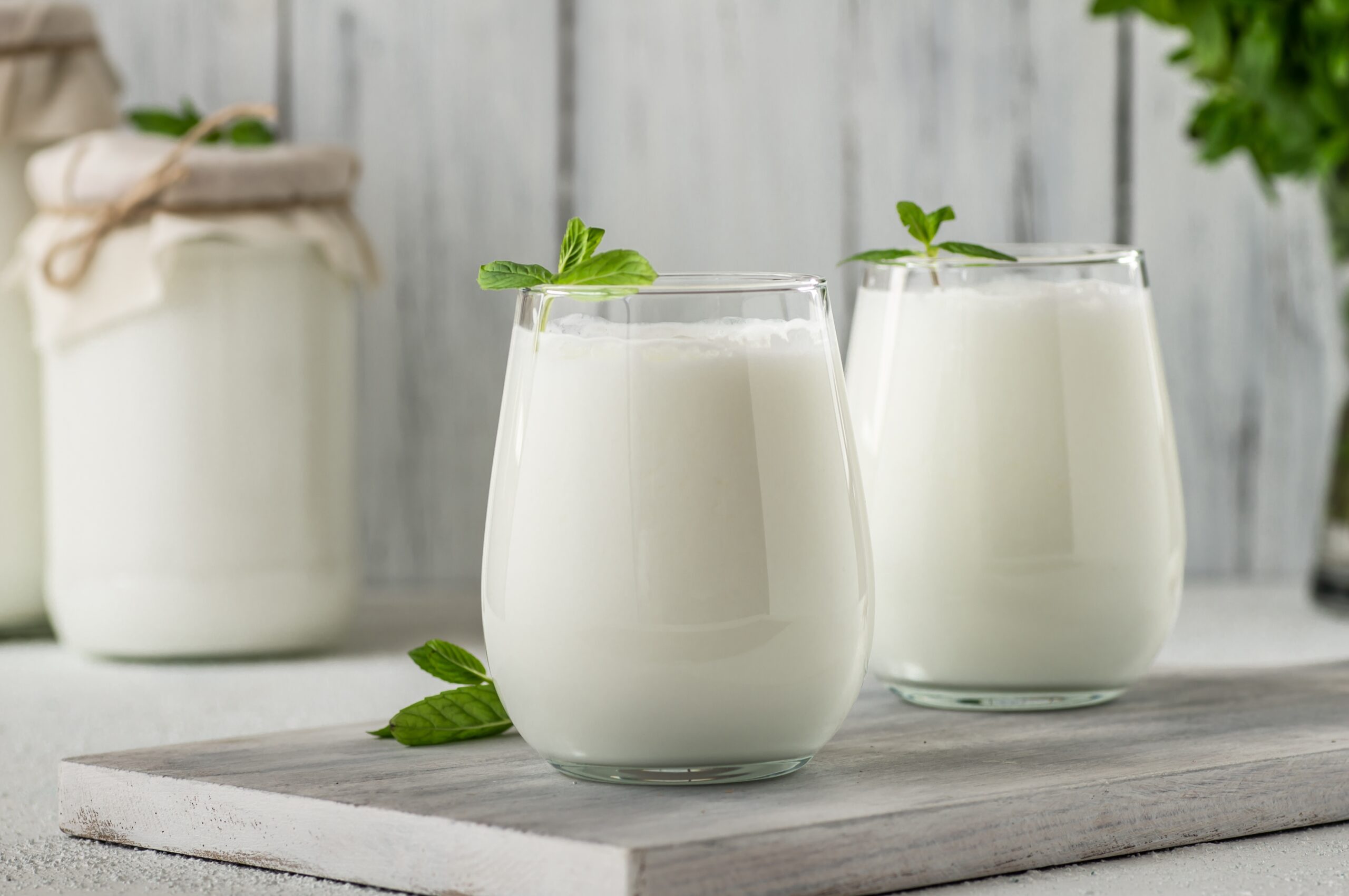
Kefir is a fermented milk drink that is rich in probiotics. It contains several strains of good bacteria and yeast, making it an excellent choice for gut health. Kefir can help break down lactose, making it easier to digest for people with lactose intolerance, and can support a healthy immune system. Its high probiotic content helps populate the gut with beneficial microorganisms, which can improve digestive function and overall gut health.
Sauerkraut
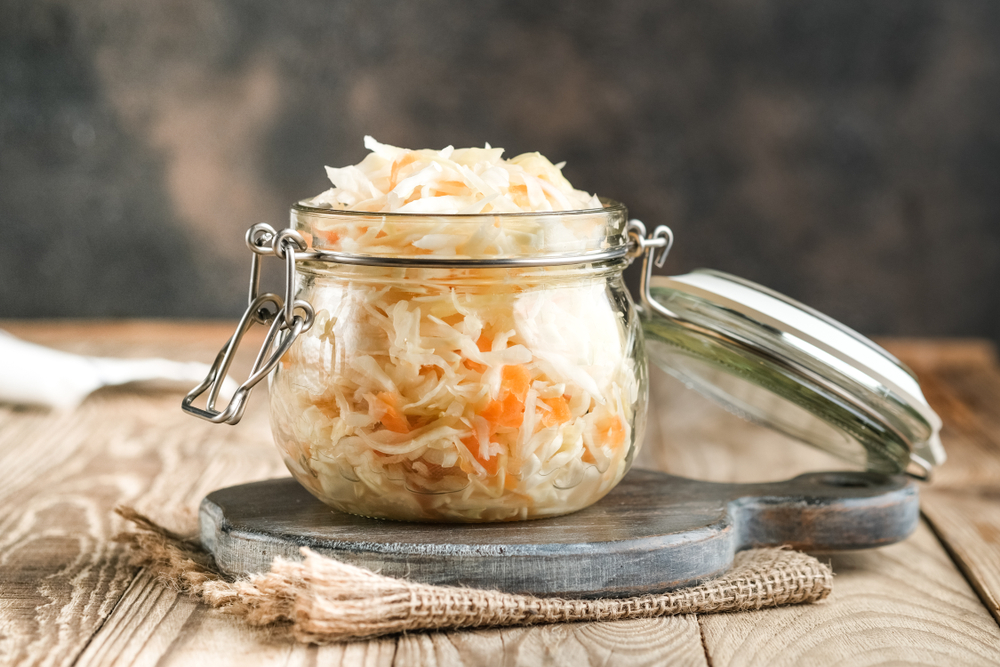
Sauerkraut is fermented cabbage that is packed with probiotics, enzymes, and fiber. The fermentation process increases the availability of nutrients and promotes the growth of healthy gut bacteria. Sauerkraut aids in digestion and can help alleviate symptoms of digestive disorders like IBS. The fiber in sauerkraut also helps regulate bowel movements, contributing to a healthier digestive tract.
Kimchi

Kimchi is a traditional Korean fermented vegetable dish, usually made with cabbage and radishes. It is rich in probiotics, vitamins, and minerals. The beneficial bacteria in kimchi can enhance gut flora diversity and support digestive health, reducing inflammation and promoting regular bowel movements. Kimchi’s high fiber content also aids in digestion and helps maintain a healthy digestive system.
Kombucha

Kombucha is a fermented tea drink that contains probiotics, antioxidants, and organic acids. The probiotics in kombucha help improve gut health by balancing the microbiome and enhancing digestive function. Additionally, kombucha’s enzymes aid in breaking down food, making digestion more efficient. The antioxidants in kombucha also help reduce inflammation in the gut, promoting overall digestive health.
Miso
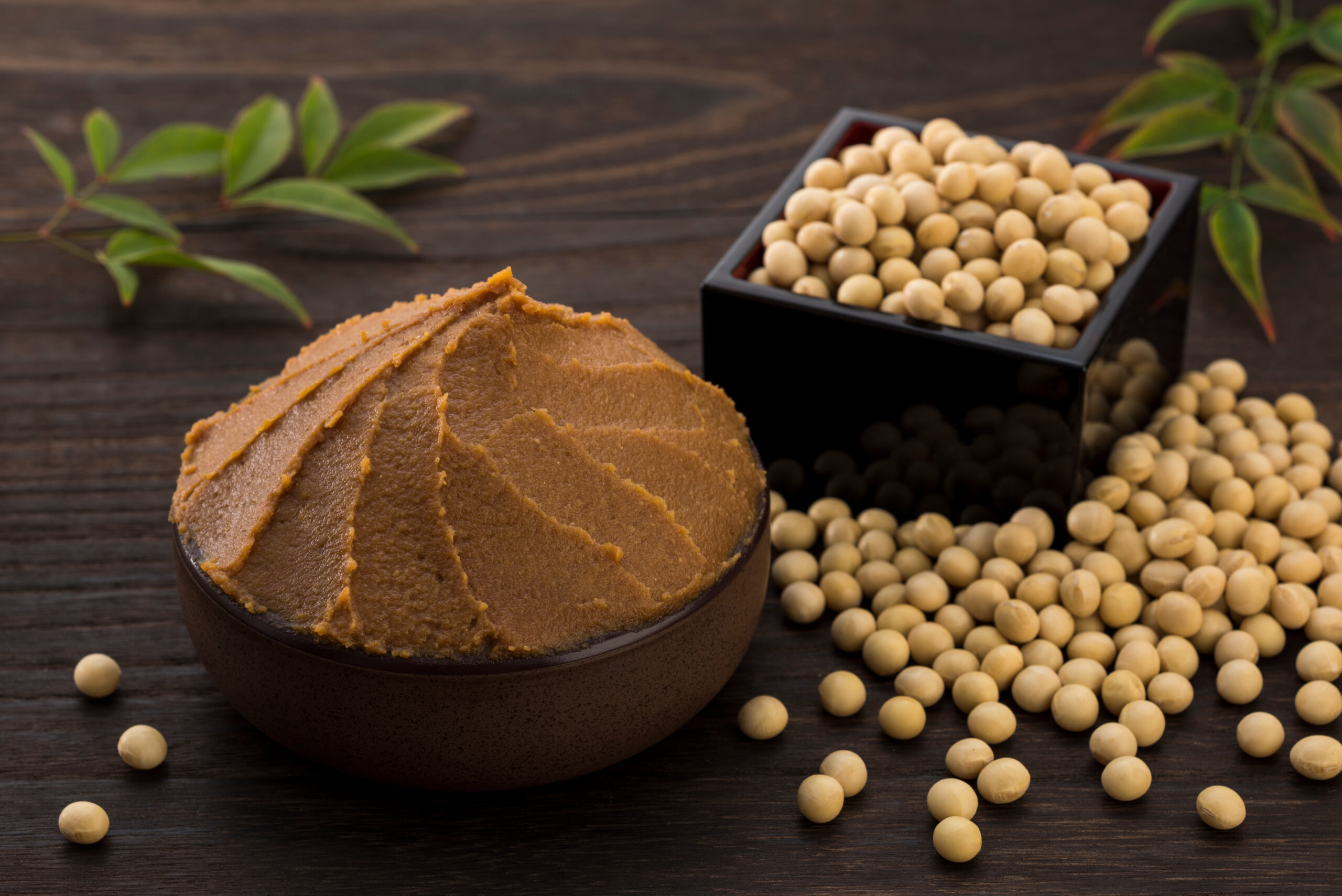
Miso is a fermented soybean paste commonly used in Japanese cuisine. It contains probiotics and enzymes that promote gut health. Miso can improve digestion, enhance nutrient absorption, and boost the immune system. Adding miso to soups and sauces can be an easy way to incorporate it into your diet, providing both flavor and digestive benefits.
Tempeh
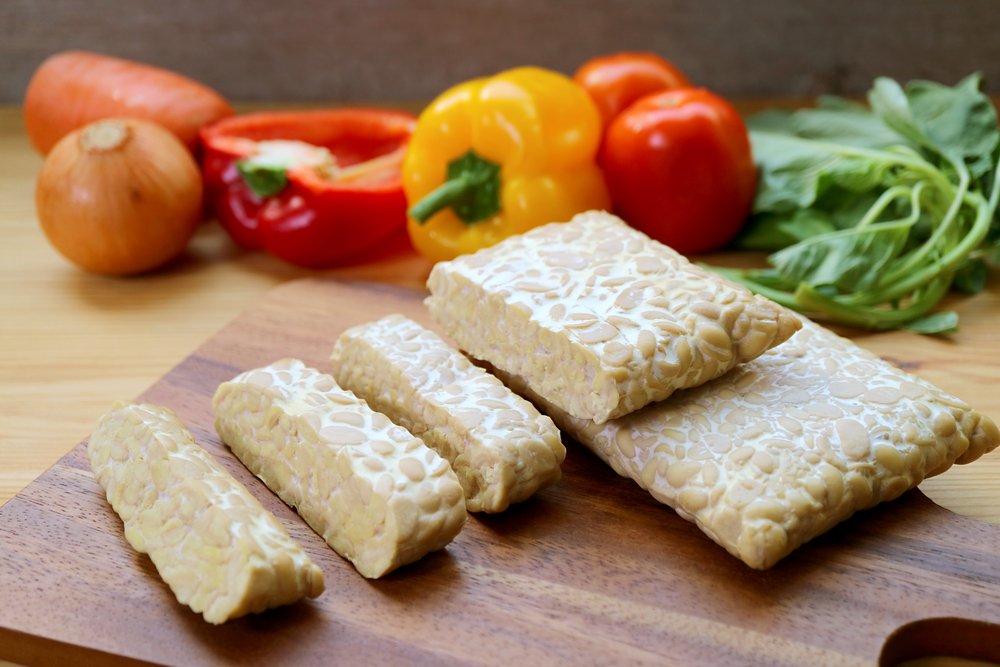
Tempeh is a fermented soybean product that is rich in probiotics, protein, and fiber. The fermentation process makes tempeh easier to digest and increases its nutritional value. Tempeh supports a healthy gut microbiome and can help alleviate digestive issues like bloating and gas. Its high protein content also makes it a great plant-based protein source for vegetarians and vegans.
Ginger
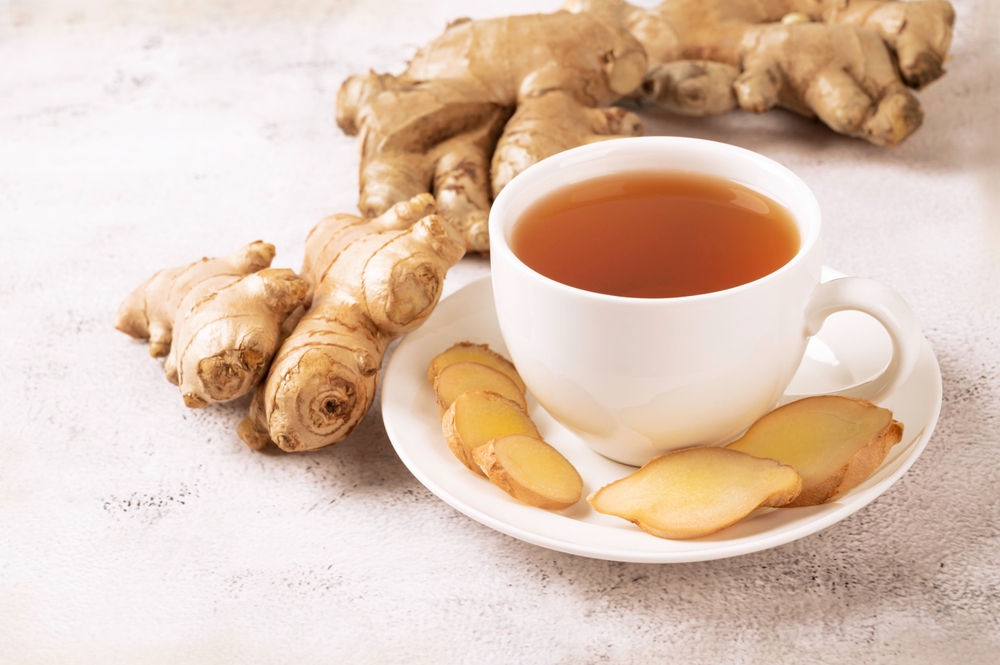
Ginger is a natural anti-inflammatory and antioxidant that aids in digestion. It helps stimulate the production of digestive enzymes, reducing nausea and improving nutrient absorption. Ginger can also relieve symptoms of indigestion and bloating, making it a beneficial addition to your diet. Fresh ginger can be added to teas, smoothies, and dishes for an extra digestive boost.
Garlic
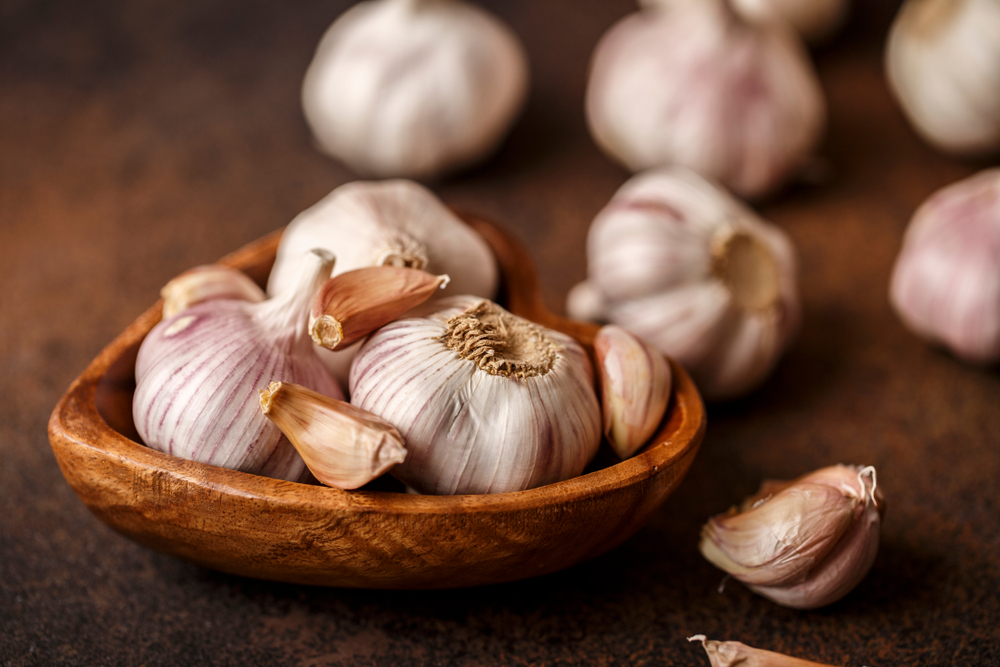
Garlic is a prebiotic food that feeds beneficial gut bacteria. It contains compounds like inulin and fructooligosaccharides that promote the growth of probiotics. Garlic also has antimicrobial properties, which can help balance the gut microbiome and improve overall digestive health. Including garlic in your meals can enhance flavor while supporting your digestive system.
Onions
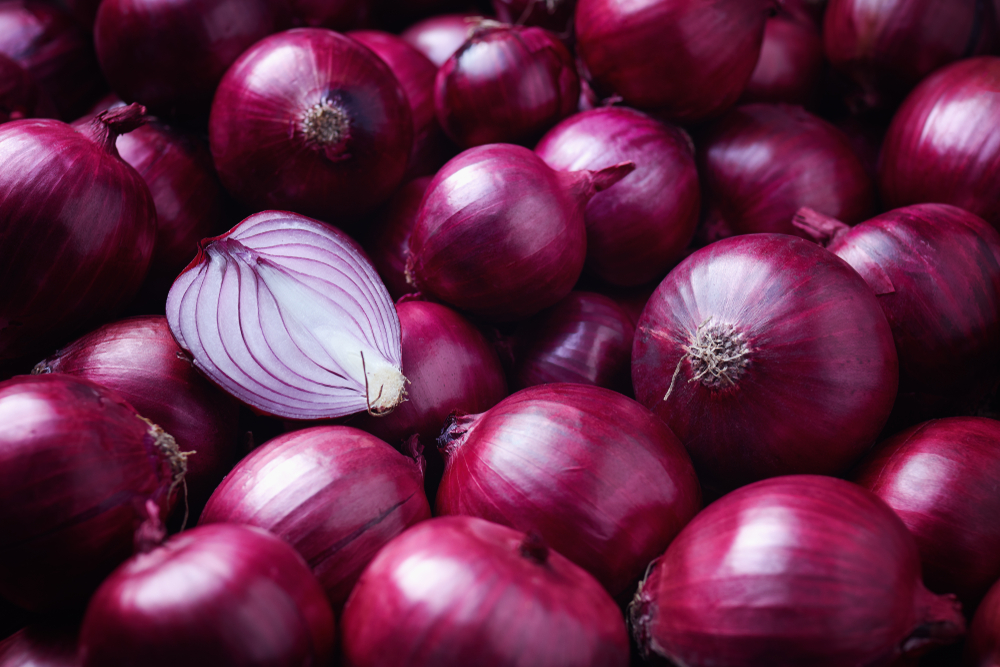
Onions are another prebiotic food that supports gut health. They contain fructooligosaccharides and inulin, which feed good bacteria in the gut. Onions also have anti-inflammatory properties and can help improve digestion and reduce the risk of gastrointestinal infections. Raw or cooked onions can be added to a variety of dishes for both taste and digestive benefits.
Bananas
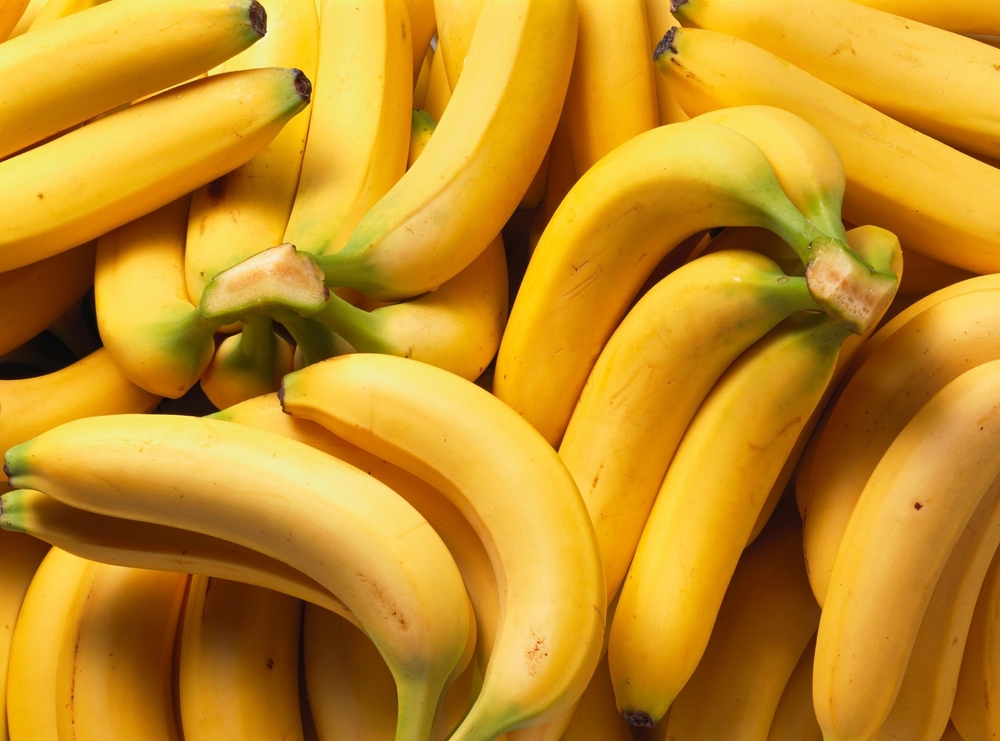
Bananas are a great source of dietary fiber, especially pectin, which helps regulate digestion and bowel movements. They contain prebiotics that nourish beneficial gut bacteria. Bananas can also help soothe the digestive tract and alleviate symptoms of diarrhea and constipation. Their natural sweetness makes them a convenient and healthy snack option.
Apples
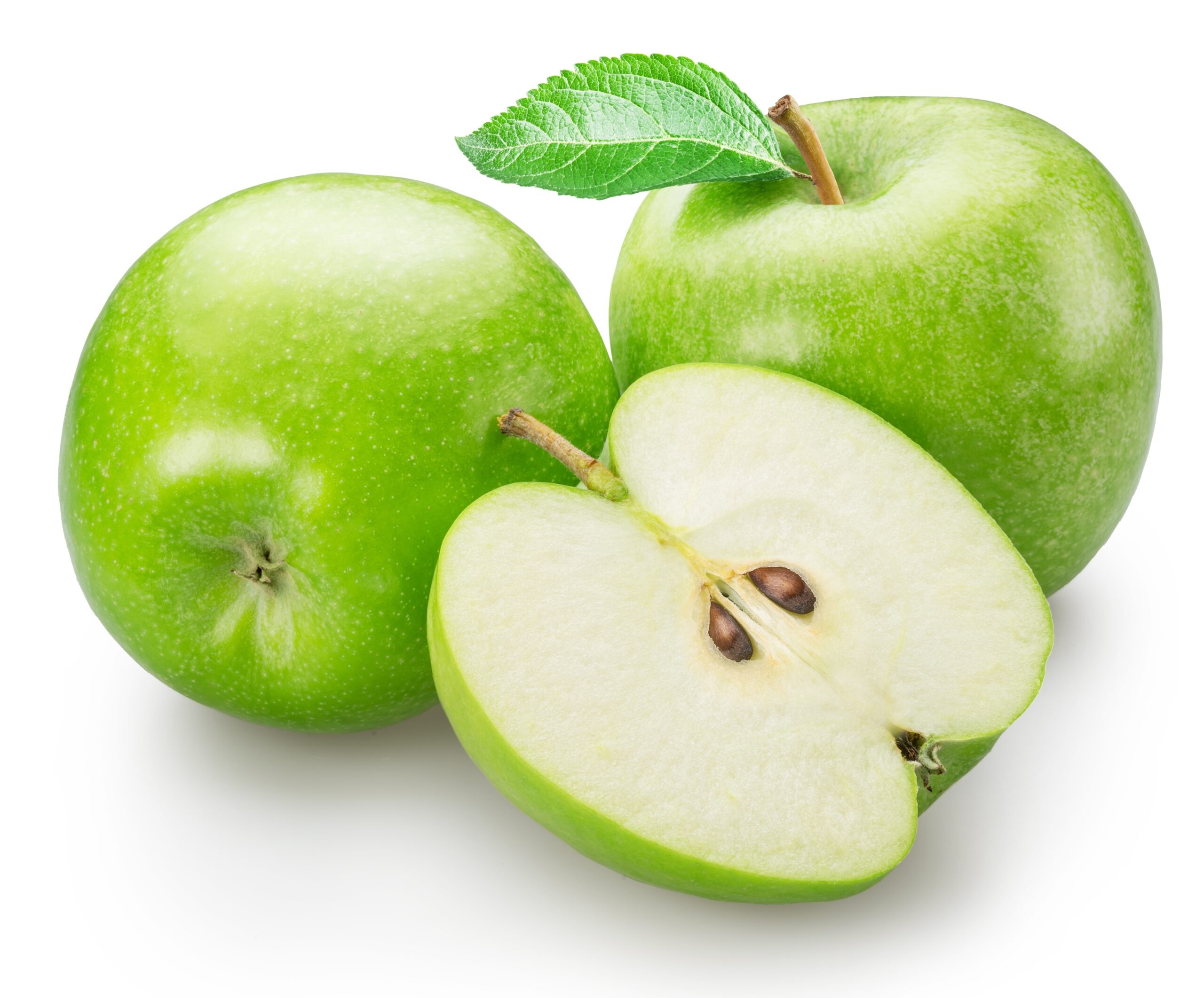
Apples are rich in dietary fiber, particularly pectin, which acts as a prebiotic. Pectin helps promote the growth of good bacteria in the gut and improves digestive health. Apples also contain antioxidants and anti-inflammatory compounds that support overall gut health. Eating apples with the skin on provides the most fiber and nutrients.
Berries

Berries such as blueberries, strawberries, and raspberries are high in fiber and antioxidants. The fiber content helps regulate bowel movements and feed beneficial gut bacteria. The antioxidants in berries reduce inflammation and protect the digestive tract from oxidative stress. Berries can be enjoyed fresh, frozen, or added to smoothies and desserts.
Chia Seeds
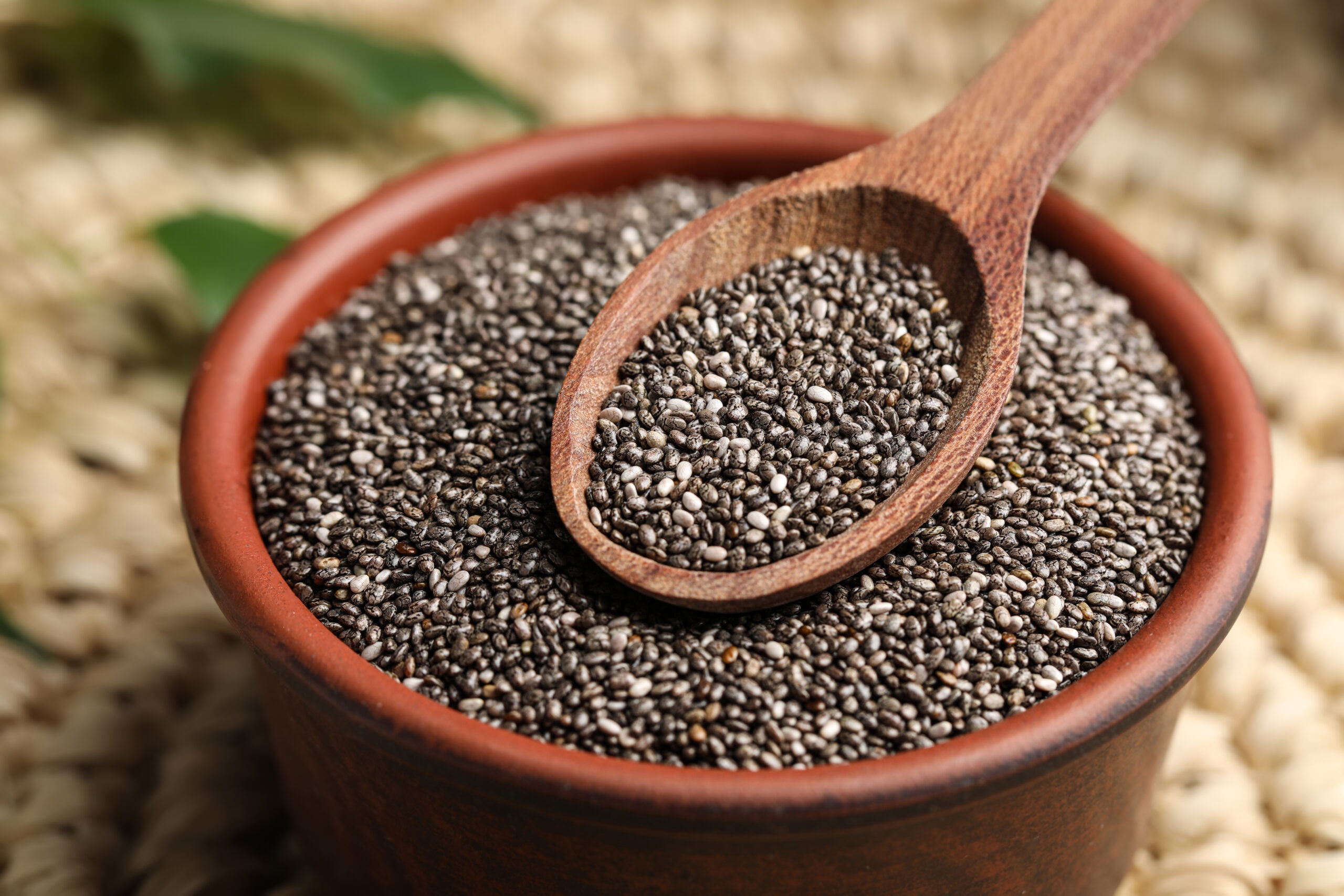
Chia seeds are an excellent source of fiber, omega-3 fatty acids, and antioxidants. The high fiber content promotes regular bowel movements and supports a healthy gut microbiome. Chia seeds also form a gel-like consistency in the stomach, aiding in digestion and nutrient absorption. They can be added to smoothies, yogurt, and baked goods for an extra nutritional boost.
Flaxseeds
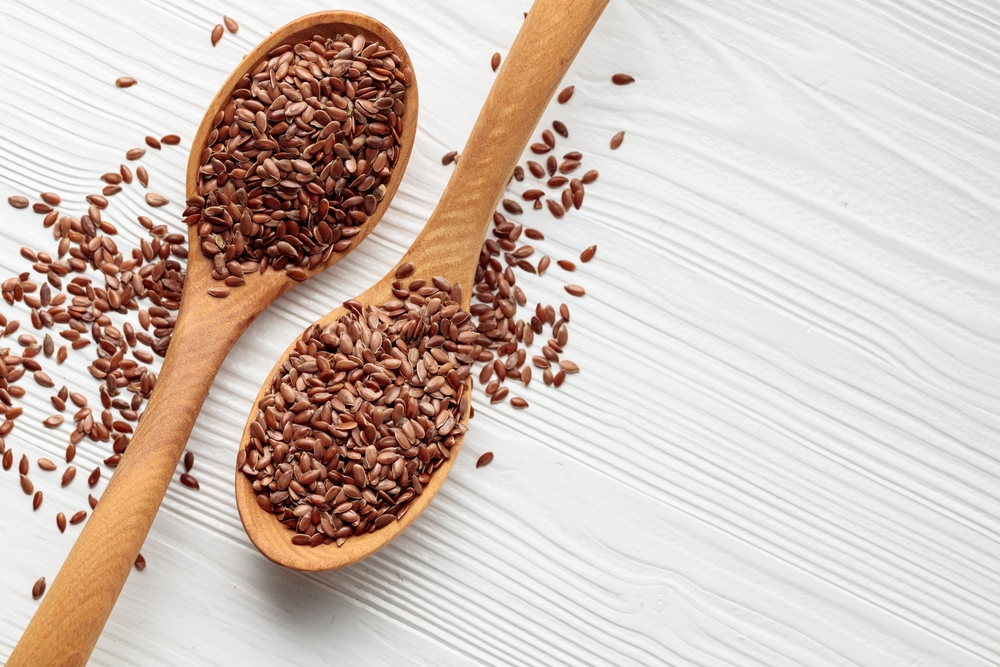
Flaxseeds are rich in soluble and insoluble fiber, which helps regulate digestion and prevent constipation. They also contain omega-3 fatty acids and lignans, which have anti-inflammatory properties. Flaxseeds can improve gut health by promoting the growth of beneficial bacteria. Ground flaxseeds can be sprinkled on cereals, salads, and smoothies for added fiber.
Whole Grains

Whole grains such as oats, quinoa, and brown rice are high in dietary fiber and prebiotics. The fiber content helps maintain regular bowel movements and supports a healthy gut microbiome. Whole grains also provide essential nutrients that contribute to overall digestive health. Incorporating whole grains into your diet can enhance digestion and prevent digestive disorders.
Leafy Greens
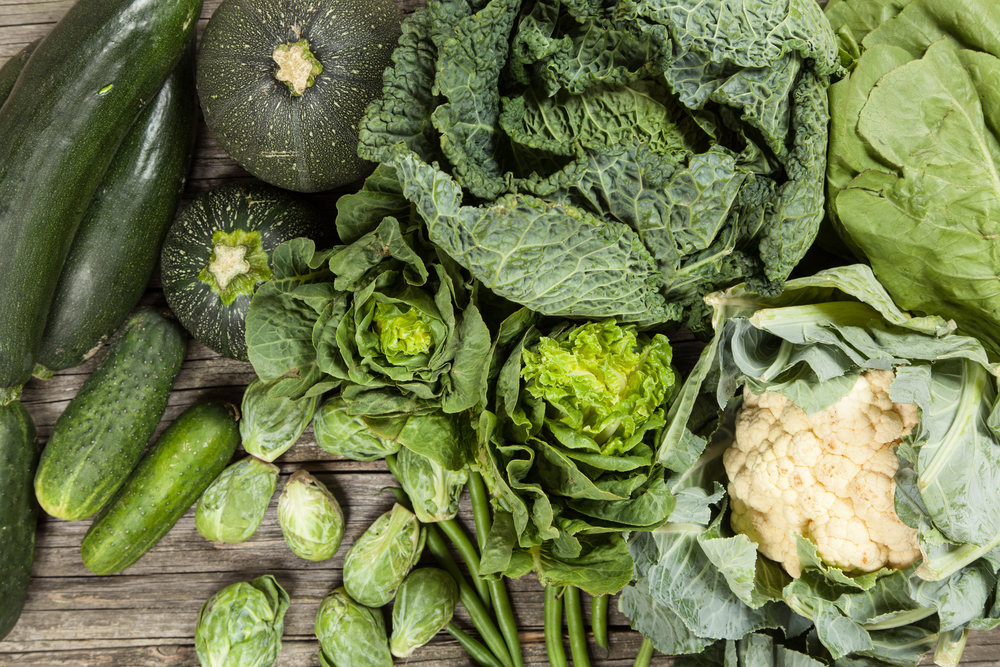
Leafy greens like spinach, kale, and Swiss chard are packed with fiber, vitamins, and minerals. They promote healthy digestion and support the growth of good gut bacteria. Leafy greens also contain magnesium, which helps relax the muscles in the digestive tract and improve bowel movements. Adding a variety of leafy greens to your diet can boost overall digestive health.
This article originally appeared on RetailShout.

